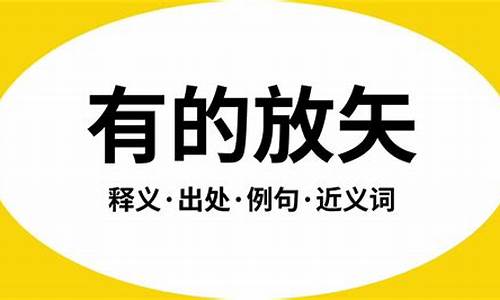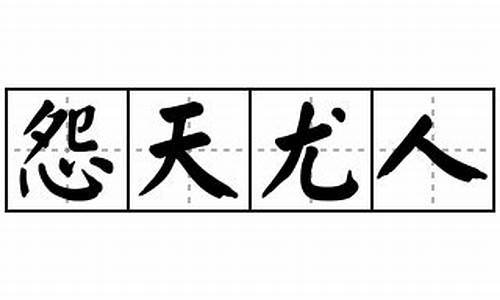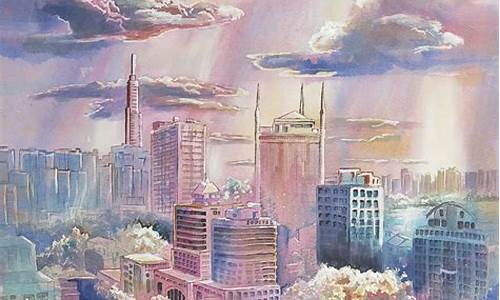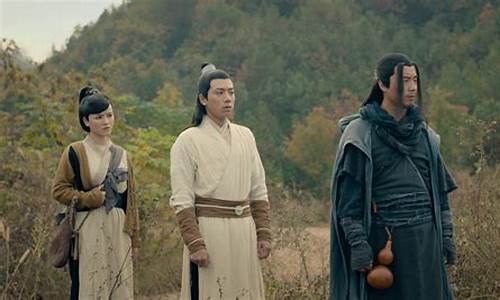您现在的位置是: 首页 > 成语谚语 成语谚语
adulterate-adulterate名词
tamoadmin 2024-10-15 人已围观
简介ac- == at; to,或表示加强意义,accustom 使习惯,account 计算,算帐,accredit 信任,accompany 陪伴,acclaim 欢呼,喝彩,accomplish 完成。扩展资料常见英语前缀:Ⅰ.前缀re-re-是最常用的前缀之一。它可以加在名词或动词前面,构成新的名词或动词。re-表示以下四方面的意义:1.表示"回"或"向后"的意思。例如:return(回来,返
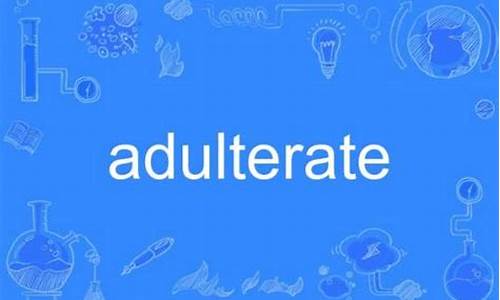
ac- == at; to,
或表示加强意义,accustom 使习惯,account 计算,算帐,accredit 信任,accompany 陪伴,acclaim 欢呼,喝彩,accomplish 完成。
扩展资料常见英语前缀:
Ⅰ.前缀re-
re-是最常用的前缀之一。它可以加在名词或动词前面,构成新的名词或动词。re-表示以下四方面的意义:
1.表示"回"或"向后"的意思。例如:return(回来,返回)
2.表示"再"、"重新"、"重复"的意思。例如:review(复习)
3.表示"相反"、"反对"的意思。例如:rebel(反叛,谋反)
4.表示“更加”的意思,用作加强语气例如“recommend”推荐,
Ⅱ.前缀de-与dis-
1."离开"、"出"。它构成的词有一定规律性,常表"离开"这一深层概念,而且常与介词from等搭配,例如:dethrone(废黜)
2.前缀de-还表示"除去"、"取消"以及"否定"、"非"、"相反"的意思。例如:decamp(撤营)
3.前缀dis-与前缀de-同源,也来自拉丁语,原义为apart"分开"。dis-具有"不"、"无"的意思,所以加在某些动词或名词前构成反义词。例如:disagree(不同意)
参考资料百度百科-英语前缀
超高分悬赏:找初中英语单词(全部)
自改革开放以来,我国对外交流逐渐密切,因此社会各界对于英语的重视程度也与日俱增,在大学阶段的英语教学过程中对于基础知识和语法使用的内容比例大范围下降,而增加了 实用英语 的内容。下面是我带来的心灵鸡汤英语小 故事 阅读,欢迎阅读!
心灵鸡汤英语小故事阅读篇一
Flotsam, Jetsam, and Liberty
By James Carey
Perhaps more than anything else in the world, I believe in liberty: liberty for myself, liberty for my fellow men. I cannot forget the legend engraved on the base of the Statue of Liberty on Bedlows Island in New York Harbor: Give me your tired, your poor, your huddled masses yearning to breathe free, the wretched refuse of your teeming shore. Send these, the homeless tempest tossed to me. I lift my lamp beside the golden door. That is the voice of America.
As one small part of it, one tiny decibel in its sound, I, as a free individual of America, believe in it. It makes no boast of noble ancestry. On the contrary, it admits honestly that each of us in this country, with a possible and qualified exception of our native Indians, is a displaced person. In a particular kind of way, the Indian was our first displaced person. If you and I did not come from abroad ourselves, our forefathers did. The scores that drove them was economic, political, or religious oppression.
Oppression has always strewn the shores of life with wretched human refuse. We who today are the proud people of a proud country are what might be called the reclaimed refuse of other lands. The fact that the flotsam and the jetsam, the persecuted and the pursued of all these other lands, the fact that they came here and, for the most part, successfully started life anew, this renews my faith in the resilience of a human individual and the dignity of man.
There are those who say we should be content with the material benefits we have accrued among ourselves. I cannot accept that for myself. A laboring man needs bread and butter, and cash to pay the rent. But he would be a poor individual, indeed, if he were not able to furnish the vestibule of his mind and his soul with spiritual embellishments beyond the price of a union contract.
I mean by this that I believe it is important for a man to discover, whether he is an electrical worker or an executive, that he is an individual with his own resources and a sense of the dignity of his own person and that of other men. We are separate. We are collective. Man can be strong alone but not indomitable, in isolation. He has to belong to something, to realize he is not created separately or apart from the rest of mankind, whether he is an American or a Mohammedan.
I am stirred by the abundance of the fields, the forest, the streams, and the natural resources they hold. But do these things make me important? Have we wrought the miracle of America because of these riches we hold? I say, no. Our strength?and I can say my strength, too, because I am a part of this whole?lies in a fundamental belief in the validity of human rights. And I believe that a man who holds these rights in proper esteem is greater, whether he is recognized or not.
As an individual, I must face the future with honesty and faith, in the goods things that have made us mighty. I must have confidence in myself, in others, and all men of goodwill everywhere, for freedom is the child of truth and confidence.
心灵鸡汤英语小故事阅读篇二
Dreams Are the Stuff Life Is Made Of
By Carroll Carroll
I believe I am a very lucky man.
My entire life has been lived in the healthy area between too little and too much. I?ve never experienced financial or emotional insecurity, but everything I have, I?ve attained by my own work, not through indulgence, inheritance, or privilege.
Never having lived by the abuses of any extreme, I?ve always felt that a workman is worthy of his hire, a merchant entitled to his profit, an artist to his reward.
As a result of all this, my bargaining bump may be a little underdeveloped, so I?ve never tried to oversell myself. And though I may work for less than I know I can get, I find that because of this, I?m never so afraid of losing a job that I?m forced to compromise with my principles.
Naturally in a life as mentally, physically, emotionally, and financially fortunate as mine has been, a great many people have helped me. A few meant to, most did so by accident. I still feel I must reciprocate. This doesn?t mean that I?ve dedicated my life to my fellow man. I?m not the type. But I do feel I should help those I?m qualified to help, just as I?ve been helped by others.
What I?m saying now is, I feel, part of that pattern. I think everyone should, for his own sake, try to reduce to six hundred words the beliefs by which he lives?it?s not easy?and then compare those beliefs with what he enjoys?not in real estate and money and goods, but in love, health, happiness, and laughter.
I don?t believe we live our lives and then receive our reward or punishment in some afterlife. The life and the reward?the life and the punishment?these to me are one. This is my religion, coupled with a firm belief that there is a Supreme Being who planned this world and runs it so that ?no man is an island, entire of himself? The dishonesty of any one man subverts all honesty. The lack of ethics anywhere adulterates the whole world?s ethical content. In these?honesty and ethics?are, I think, the true spiritual values.
I believe the hope for a thoroughly honest and ethical society should never be laughed at. The most idealistic dreams have repeatedly forecast the future. Most of the things we think of today as hard, practical, and even indispensable were once merely dreams.
So I like to hope that the world need not be a dog-eat-dog jungle. I don?t think I?m my brother?s keeper. But I do think I?m obligated to be his helper. And that he has the same obligation to me.
In the last analysis, the entire pattern of my life and belief can be found in the words ?do NOT do unto others that which you would NOT have others do unto you.? To say ?Do unto others as you would have others DO unto you? somehow implies bargaining, an offer of favor for favor. But to restrain from acts which you, yourself, would abhor is an exercise in will power that must raise the level of human relationship.
?What is unpleasant to thyself,? says Hillel, ?THAT do NOT unto thy neighbor. This is the whole law,? and he concluded, ?All else is exposition.?
心灵鸡汤英语小故事阅读篇三
A Ball to Roll Around
By Robert Allman
I lost my sight when I was 4 years old by falling off a boxcar in a freight yard in Atlantic City, New Jersey, and landing on my head. Now, I am 32. I can vaguely remember the brightness of sunshine and what color red is. It would be wonderful to see again. But a calamity can do strange things to people.
It occurred to me the other day that I might not have come to love life so, as I do, if I hadn?t been blind. I believe in life now. I am not so sure that I would have believed in it so deeply, otherwise. I don?t mean that I would prefer to go without my eyes. I simply mean that the loss of them made me more appreciate what I had left.
Life, I believe, asks a continuous series of adjustments to reality. The more readily a person is able to make these adjustments, the more meaningful his own private world becomes. The adjustment is never easy. I was bewildered and afraid, but I was lucky. My parents and my teachers saw something in me?oh, a potential to live you might call it?which I didn?t see. And they made me want to fight it out with blindness.
The hardest lesson I had to learn was to believe in myself. That was basic. If I hadn?t been able to do that, I would have collapsed and become a chair rocker on the front porch for the rest of my life. When I say believe in myself, I am not talking about simply the kind of self-confidence that helps me down an unfamiliar staircase alone. That is part of it, but I mean something bigger than that: an assurance that I am, despite imperfections, a real, positive person; that somewhere in the sweeping, intricate, pattern of people, there is a special place where I can make myself fit. It took me years to discover and strengthen this assurance. It had to start with the most elementary things.
When I was a youngster, once a man gave me an indoor baseball. I thought he was mocking me, and I was hurt.
?I can?t use this,? I said.
?Take it with you, ? he urged me, ?and roll it around.?
The words stuck in my head: ?Roll it around, roll it around.? By rolling the ball, I could listen where it went. This gave me an idea?how to achieve a goal I had thought impossible: playing baseball. At Philadelphia?s Overbrook School for the Blind, I invented a successful variation of baseball. We called it groundball.
All my life, I have set ahead of me a series of goals, and then tried to reach them one at a time. I had to learn my limitations. It was no good to try for something I knew at the start was wildly out of reach, because that only invited the bitterness of failure. I would fail sometimes anyway, but on the average, I made progress.
I believe I made progress more readily because of a pattern of life shaped by certain values. I find it easier to live with myself if I try to be honest. I find strength in the friendship and interdependence of people. I would be blind, indeed, without my sighted friends. And very humbly, I say that I have found purpose and comfort in a mortal?s ambition toward godliness.
Perhaps a man without sight is blinded less by the importance of material things than other men are. All I know is that a belief in the higher existence of a nobility for men to strive for has been an inspiration that has helped me more than anything else to hold my life together.
每日英语晨读美文3篇
《A0105初中英语考试单词30小时全记牢视频教程抗遗忘不用记英口语3.0软件》百度网盘资源免费下载
链接: 提取码: 3wfx
A0105 初中英语考试单词30小时全记牢视频教程抗遗忘不用记英口语3.0软件|《如鱼得水背单词4级词汇篇章记忆》(单词表)(文本、mp3、wav).rar(更新)|15 单词不用记+超强记忆学习法.rar|14 单词不用记+VWYZ.rar|13 单词不用记+TU.rar|12+单词不用记+++ST2.rar|11+单词不用记+++RS.rar|10+单词不用记+++PQR.rar|09 单词不用记+NOP.rar|08 单词不用记+MN.rar|07 单词不用记+IJKL.rar|06 单词不用记+GHI.rar|05 单词不用记+FG.rar|04 单词不用记+DEF.rar|03 单词不用记+CD.rar
adult怎么读
英语是目前世界上通用程度最高的语言,也是人们参与国际交流和竞争必备的技能。下面是我带来的每日英语晨读美文,欢迎阅读!
每日英语晨读美文篇一
Causes Are People
by Susan Parker Cobbs
IT HAS NOT been easy for me to meet this assignment. In the first place, I am not a very articulate person, and then one has so many beliefs, changing and fragmented and transitory beliefs---besides the ones most central to our lives. I have tried hard to pull out and put into words my most central beliefs. I hope that what I say won?t sound either too simple or too pious.
I know that it is my deep and fixed conviction that man has within him the force of good and the power to translate force into life. For me, this means that a pattern of life that makes personal relationships more important. A pattern that makes more beautiful and attractive the personal virtues: courage, humility, selflessness and love. I used to smile at my mother because the tears came so readily to her eyes when she heard or read of some incident that called out these virtues. I don?t smile any more because I find I have become more and more responsive in the same inconvenient way to the same kind of story.
And so I believe that I both can and must work to achieve the good that is in me. The words of Socrates keep coming back to me: ?The unexamined life is not worth living.? By examination we can discover what is our good and we can realize that knowledge of good means its achievement. I know that such self-examination has never been easy---Plato maintained that it was soul?s central search. It seems to me peculiarly difficult now. In a period of such rapid material expansion and such wide spread conflicts, black and white have become gray and will not easily separate.
There is a belief which follows this. If I have the potential of the good life within me and compulsion to express it, then it is a power and compulsion common to all men. What I must have for myself to conduct my search, all men must have: freedom of choice, faith in the power and the beneficent qualities of truth. What frightens me most today is the denial of these rights, because this can only come from the denial of what seems to me the essential nature of man. For if my conviction holds, man is more important than anything he has created and our great task is to bring back again into a subordinate position the monstrous superstructures of our society.
I hope this way of reducing our problems to the human equation is not simple an evasion of them. I don?t believe it is. For most of us it is the area in which we can work : the human area---with ourselves, with the people we touch, and through these two by vicarious understanding, with mankind. I believe this is the safest starting point. I watch young people these days wrestling with our mighty problems. They are much more concerned with them and involved in them than my generation of students ever was. They are deeply aware of the words ?quality? and ?justice? In their great desire to right wrong they are prone to forget that causes are people, that nothing matters more than people. They need to add to their crusades the warmer and more affecting virtues of compassion and love. And here again come those personal virtues that bring tears to the eyes.
One further word, I believe that the power of good within us is real and comes there from a source outside and beyond ourselves. Otherwise, I could not put my trust so firmly in it.
每日英语晨读美文篇二Keep the Innocent Eye
By Sir Hugh Casson
When I Accepted the invitation to join in "This I Believe," it was not-goodness knows-because I felt I had anything profound to contribute. I regarded it-selfishly, perhaps-as a chance to get my own ideas straight. I started, because it seemed simplest that way, with my own profession. The signposts I try to follow as an architect are these: to keep the innocent eye with which we are all born, and therefore always to be astonished; to respect the scholar but not the style snob; to like what I like without humbug, but also to train my eye and mind so that I can say why I like it; to use my head but not to be frightened to listen to my heart (for there are some things which can be learned only through emotion); finally, to develop to the best of my ability the best that lies within me.
But what, you may say, about the really big problems of life- Religion? Politics? World Affairs? Well, to be honest, these great problems do not weigh heavily upon my mind. I have always cared more for the small simplicities of life-family affection, loyalty of friends, joy in creative work.
Religion? Well, when challenged I describe myself as "Church of England," and as a child I went regularly to church. But today, though I respect churchgoing as an act of piety and enjoy its sidelines, so to speak, the music and the architecture, it holds no significance for me. Perhaps, I don't know, it is the atmosphere of death in which religion is so steeped that has discouraged me-the graveyards, the parsonical voice, the thin damp smell of stone. Even today a "holy" face conjures up not saintliness but moroseness. So, most of what I learned of Christian morality I think I really learned indirectly at home and from friends.
World Affairs? I wonder if some of you remember a famous prewar cartoon. It depicted a crocodile emerging from a peace conference and announcing to a huge flock of sheep (labeled "People of the World"), "I am so sorry we have failed. We have been unable to restrain your warlike ambitions." Frankly, I feel at home with those sheep-mild, benevolent, rather apprehensive creatures, acting together by instinct and of course very, very woolly. But I have learned too, I think, that there is still no force, not even Christianity, so strong as patriotism; that the instinctive wisdom with which we all act in moments of crisis-that queer code of conduct which is understood by all but never formulated-is a better guide than any panel of professors; and finally that it is the inferiority complex, usually the result of an unhappy or unlucky home, which is at the bottom of nearly all our troubles. Is the solution, then, no more than to see that every child has a happy home? I'm not sure that it isn't. Children are nearer truth than we are. They have the innocent eye.
If you think that such a philosophy of life is superficial or tiresomely homespun or irresponsible, I will remind you in reply that the title of this series is "This I Believe?-not "This I ought to believe," nor even "This I would like to believe?-but, "This I Believe."
每日英语晨读美文篇三Dreams Are the Stuff Life Is Made Of
By Carroll Carroll
I believe I am a very lucky man.
My entire life has been lived in the healthy area between too little and too much. I?ve never experienced financial or emotional insecurity, but everything I have, I?ve attained by my own work, not through indulgence, inheritance, or privilege.
Never having lived by the abuses of any extreme, I?ve always felt that a workman is worthy of his hire, a merchant entitled to his profit, an artist to his reward.
As a result of all this, my bargaining bump may be a little underdeveloped, so I?ve never tried to oversell myself. And though I may work for less than I know I can get, I find that because of this, I?m never so afraid of losing a job that I?m forced to compromise with my principles.
Naturally in a life as mentally, physically, emotionally, and financially fortunate as mine has been, a great many people have helped me. A few meant to, most did so by accident. I still feel I must reciprocate. This doesn?t mean that I?ve dedicated my life to my fellow man. I?m not the type. But I do feel I should help those I?m qualified to help, just as I?ve been helped by others.
What I?m saying now is, I feel, part of that pattern. I think everyone should, for his own sake, try to reduce to six hundred words the beliefs by which he lives?it?s not easy?and then compare those beliefs with what he enjoys?not in real estate and money and goods, but in love, health, happiness, and laughter.
I don?t believe we live our lives and then receive our reward or punishment in some afterlife. The life and the reward?the life and the punishment?these to me are one. This is my religion, coupled with a firm belief that there is a Supreme Being who planned this world and runs it so that ?no man is an island, entire of himself? The dishonesty of any one man subverts all honesty. The lack of ethics anywhere adulterates the whole world?s ethical content. In these?honesty and ethics?are, I think, the true spiritual values.
I believe the hope for a thoroughly honest and ethical society should never be laughed at. The most idealistic dreams have repeatedly forecast the future. Most of the things we think of today as hard, practical, and even indispensable were once merely dreams.
So I like to hope that the world need not be a dog-eat-dog jungle. I don?t think I?m my brother?s keeper. But I do think I?m obligated to be his helper. And that he has the same obligation to me.
In the last analysis, the entire pattern of my life and belief can be found in the words ?do NOT do unto others that which you would NOT have others do unto you.? To say ?Do unto others as you would have others DO unto you? somehow implies bargaining, an offer of favor for favor. But to restrain from acts which you, yourself, would abhor is an exercise in will power that must raise the level of human relationship.
?What is unpleasant to thyself,? says Hillel, ?THAT do NOT unto thy neighbor. This is the whole law,? and he concluded, ?All else is exposition.?
adult的读音是:英['?d?lt]。
adult的读音是:英['?d?lt]。adult的详尽释义是n.(名词)成年人,成人,大人已长大的动物,成年动物生成体;成虫成熟。adult的例句是用作名词(n.)Child who is not accompanied by an adult will not be admitted.儿童无成人带领不得入内。
一、详尽释义点此查看adult的详细内容
n.(名词)成年人,成人,大人已长大的动物,成年动物生成体;成虫成熟adj.(形容词)成熟的成年的,成年人的,已成人的的老成的限于成年人的适合成年人(阅读)的二、英英释义
Noun:a fully developed person from maturity onward
any mature animal
Adjective:(of animals) fully developed;"an adult animal"
"a grown woman"
designed to arouse lust;"pornographic films and magazines"
"adult movies"
三、词典解释
1.(法律意义上的)成年人
Anadult is a mature, fully developed person. An adult has reached the age when they are legally responsible for their actions.
e.g. Becoming a father signified that he was now anadult...
当了父亲意味着他已是个成年人了。
e.g. Children under 14 must be accompanied by anadult.
14岁以下的儿童必须由成人陪同。
2.成年动物
Anadult is a fully developed animal.
e.g. ...a pair ofadult birds.
一对成年鸟
3.成年的;属于成人的
Adult means relating to the time when you are an adult, or typical of adult people.
adult
e.g. I've lived most of myadult life in London.
我成年之后的大部分时间都是在伦敦度过的。
4.成熟的;老成的
If you say that someone isadult about something, you think that they act in a mature, intelligent way, especially when faced with a difficult situation.
e.g. We were veryadult about it. We discussed it rationally over a drink.
在这件事上我们表现得很成熟。我们一边喝酒一边心平气和地谈了谈。
e.g. ...dealing with emerging sexuality in anadult way.
平静对待出现的性征
5.(涉及性内容的**或书籍)仅限于成人的
You can describe things such as films or books asadult when they deal with sex in a very clear and open way.
e.g. ...anadult movie.
成人**
四、例句
Child who is not accompanied by an adult will not be admitted.
儿童无成人带领不得入内。
The bear was a fully grown adult.
那只熊已完全发育成熟.
He spent his adult life in Canada.
他在加拿大度过了他的成年时期。
Can you try and be a little more adult about this?
你能不能试着更理智一点地看待这件事?
Children are not admitted, for this is an adult film.
儿童不得入内观看,因为这是一部成人**。
His behavior is not particularly adult.
他的举止行为还不太成熟。
五、常见句型
用作形容词(adj.)用作定语~+ n.We should do our best to develop the adult education.
我们应当努力发展成人教育。I like his adult approach to the problem.
我喜欢他老成地处理这个问题。用作表语S+be+~+ prep. -phraseHe is adult in behavior.
从行为上看,他已成熟了。S+be+~+to- vAren't you adult enough to know that there are two sides to every issue?
长这么大了,你难道还不懂每一件事都有两面性吗?用作名词(n.)Anyone over eighteen years of age counts as adult.
凡是超过18岁的都算成年人。Children are usually more natural in their manner than adults.
孩子们的举止通常比成年人自然。The bear was a fully grown adult.
那只熊已完全发育成熟。六、词汇搭配
用作形容词 (adj.)~+名词adult education成人教育adult man成年人副词+~completely adult完全成熟的emotionally adult感情上成熟的intellectually adult智力上成熟的~+介词adult in behaviour行为成熟用作名词 (n.)形容词+~independent adult能自立的成年人介词+~education for adults成人教育七、词语用法
adj.(形容词)adult用作形容词的基本意思是“成熟的”,指人身体已经发育成熟,也可指智力及情感已成熟,用于物则指达到发展过程中的成熟阶段。adult也可作“成年人的,适宜于成年人的”解,指已经度过青春期或已经达到法定年龄。adult作“成年的”“成年人的”解时不用于比较等级,作“老成的”解时可用于比较等级。adult的相关近义词
full-grown、grown-up、ripe
adult的相关反义词
immature、infantile、juvenile
adult的相关临近词
adulterate、adulation、adults、adultly、adultoid、adultism、adultify、adult men、adultment、adult rat、adulthood、adult fly
点此查看更多关于adult的详细信息




